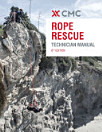Literacy, Place, and Pedagogies of Possibility
জুলাই ২০১৫ · Routledge
ইবুক
210
পৃষ্ঠা
family_home
যোগ্য
info
reportমূল্যাংকন আৰু পৰ্যালোচনা সত্যাপন কৰা হোৱা নাই অধিক জানক
এই ইবুকখনৰ বিষয়ে
How can teachers ensure a pedagogy of possibility underpinned by social justice, and what has literacy got to do with this? This book explores the positive synergies between critical literacy and place-conscious pedagogy. Through rich classroom research it introduces and demonstrates how a synthesis of insights from theories of space and place and literacy studies can underpin the design and enactment of culturally inclusive curriculum for diverse student communities, and illustrates how making place and space the objects of study provide productive resources for teachers to design enabling pedagogical practices that extend students’ literate repertoires. The argument is that systematic study of and engagement with specific elements of place can enable students’ academic learning and literacy.
Literacy, Place, and Pedagogies of Possibility
- is informed by critical literacy, place-conscious pedagogy and spatial theory
- is richly illustrated with examples from classroom research, including teacher and student artifacts
- provides new directions for classroom practice in critical literacy
This novel combination of multidisciplinary theory and classroom research extends previous work in critical literacy pedagogy, drawing on two decades of ethnographic and collaborative inquiry in classrooms situated in culturally and linguistically diverse classrooms.
লিখকৰ বিষয়ে
Barbara Comber is Research Professor, Faculty of Education, Queensland University of Technology, Australia.
এই ইবুকখনক মূল্যাংকন কৰক
আমাক আপোনাৰ মতামত জনাওক।
পঢ়াৰ নির্দেশাৱলী
স্মাৰ্টফ’ন আৰু টেবলেট
Android আৰু iPad/iPhoneৰ বাবে Google Play Books এপটো ইনষ্টল কৰক। ই স্বয়ংক্রিয়ভাৱে আপোনাৰ একাউণ্টৰ সৈতে ছিংক হয় আৰু আপুনি য'তে নাথাকক ত'তেই কোনো অডিঅ'বুক অনলাইন বা অফলাইনত শুনিবলৈ সুবিধা দিয়ে।
লেপটপ আৰু কম্পিউটাৰ
আপুনি কম্পিউটাৰৰ ৱেব ব্রাউজাৰ ব্যৱহাৰ কৰি Google Playত কিনা অডিঅ'বুকসমূহ শুনিব পাৰে।
ই-ৰীডাৰ আৰু অন্য ডিভাইচ
Kobo eReadersৰ দৰে ই-চিয়াঁহীৰ ডিভাইচসমূহত পঢ়িবলৈ, আপুনি এটা ফাইল ডাউনল’ড কৰি সেইটো আপোনাৰ ডিভাইচলৈ স্থানান্তৰণ কৰিব লাগিব। সমৰ্থিত ই-ৰিডাৰলৈ ফাইলটো কেনেকৈ স্থানান্তৰ কৰিব জানিবলৈ সহায় কেন্দ্ৰত থকা সবিশেষ নিৰ্দেশাৱলী চাওক।





